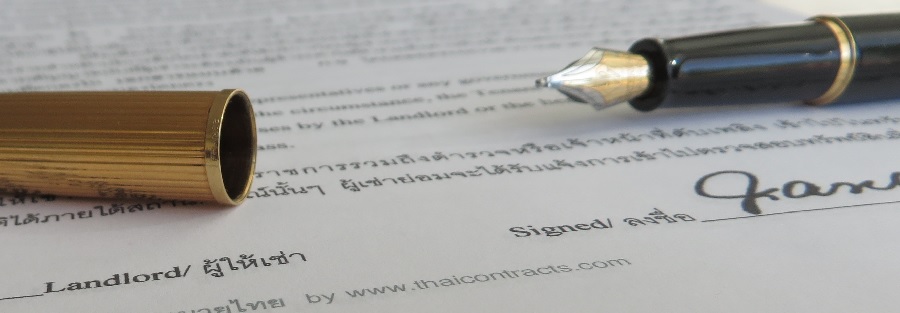The Thailand Civil and Commercial Code on the transfer of claims, the transfer of a demand for money, for property, or for enforcement of a right provided by law.
CHAPTER IV
TRANSFER OF CLAIMS
Section 303. A claim may be transferred, unless its nature does not admit of it.
The provisions of the foregoing paragraph do not apply, if the parties have declared a contrary intention. Such declaration of intention, however, cannot be set up against a third person acting in good faith.
Section 304. A claim is not transferable if it is not subject to judicial attachment.
Section 305. With the transferred claim the rights of mortgage or pledge existing on its account and the rights, arising from a suretyship established for it, pass to the transferee.
The transferee may also enforce any preferential right connected with the claim in case of compulsory execution or bankruptcy.
Section 306. The transfer of an obligation performable to a specific creditor is not valid unless it is made in writing. It can be set up against the debtor or third person only if a notice thereof has been given to the debtor, or if the debtor has consented to the transfer. Such notice or consent be in writing.
The debtor is discharged if he satisfies the transferor by way of payment or otherwise before he has received notice of, or has agreed to, the transfer.
Section 307. If a right is claimed under different transfers, the first transfer notified, or agreed to, shall be preferred.
Section 308. If a debtor has given the consent mentioned in Section 306 without reservation, he cannot set up against the transferee a defense which he might have made against the transferor. If, however, in order to extinguish the obligation, the debtor has made any payment to the transferor, he may recover it, or if for such purpose he has assumed an obligation to the transferor, he may treat it as if it did not exist.
If the debtor has only received a notice of the transfer, he may set up against the transferee any defense which he had against the transferor before he recieved such notice. If the debtor had against the transferor a claim not yet due at the time of the notice, he can set off such claim provided that the same would become due not later than the claim transferred.
Section 309. The transfer of an obligation performable to order can be set up against the debtor or other third person only if the transfer is indorsed on the instrument, and the instrument itself is delivered to the transferee.
Section 310. The debtor of an obligation performable to order has the right, but is not bound, to verify the identity of the holder of the instrument or the genuineness of his signature or seal; but if the debtor acts in bad faith or with gross negligence, his performance is invalid.
Section 311. The provisions of the foregoing section apply correspondingly, if a creditor is designated in the instrument, but it is added that performance shall be made to the holder of such instrument.
Section 312. The debtor of an obligation performable to order cannot set up against any transferee in good faith defences which he might have set up against the original creditor, except such as appear on the face of the instrument or result naturally from its character.
Section 313. The provisions of the foregoing section apply correspondingly to obligations performance to bearer.
| Prev | Next |

